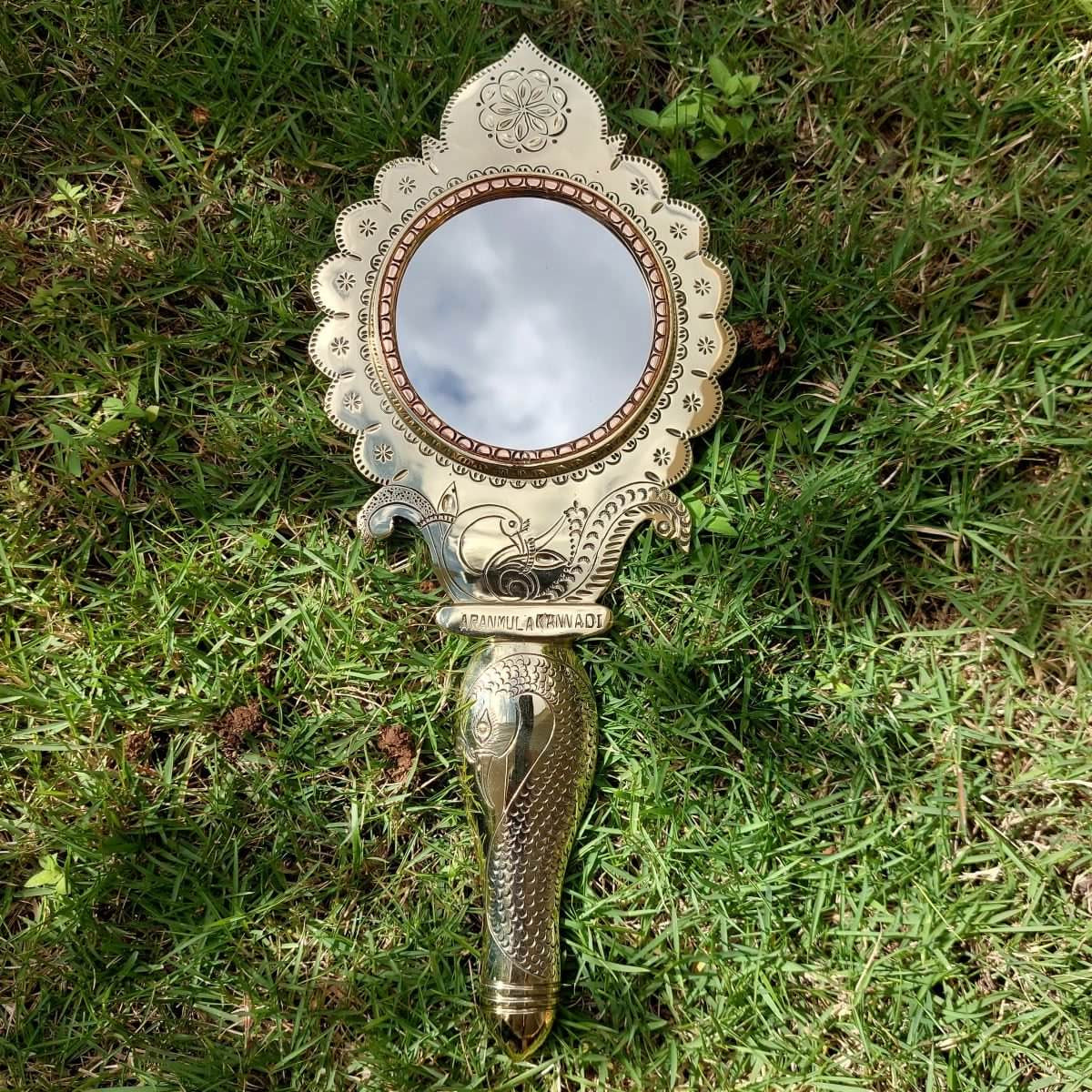
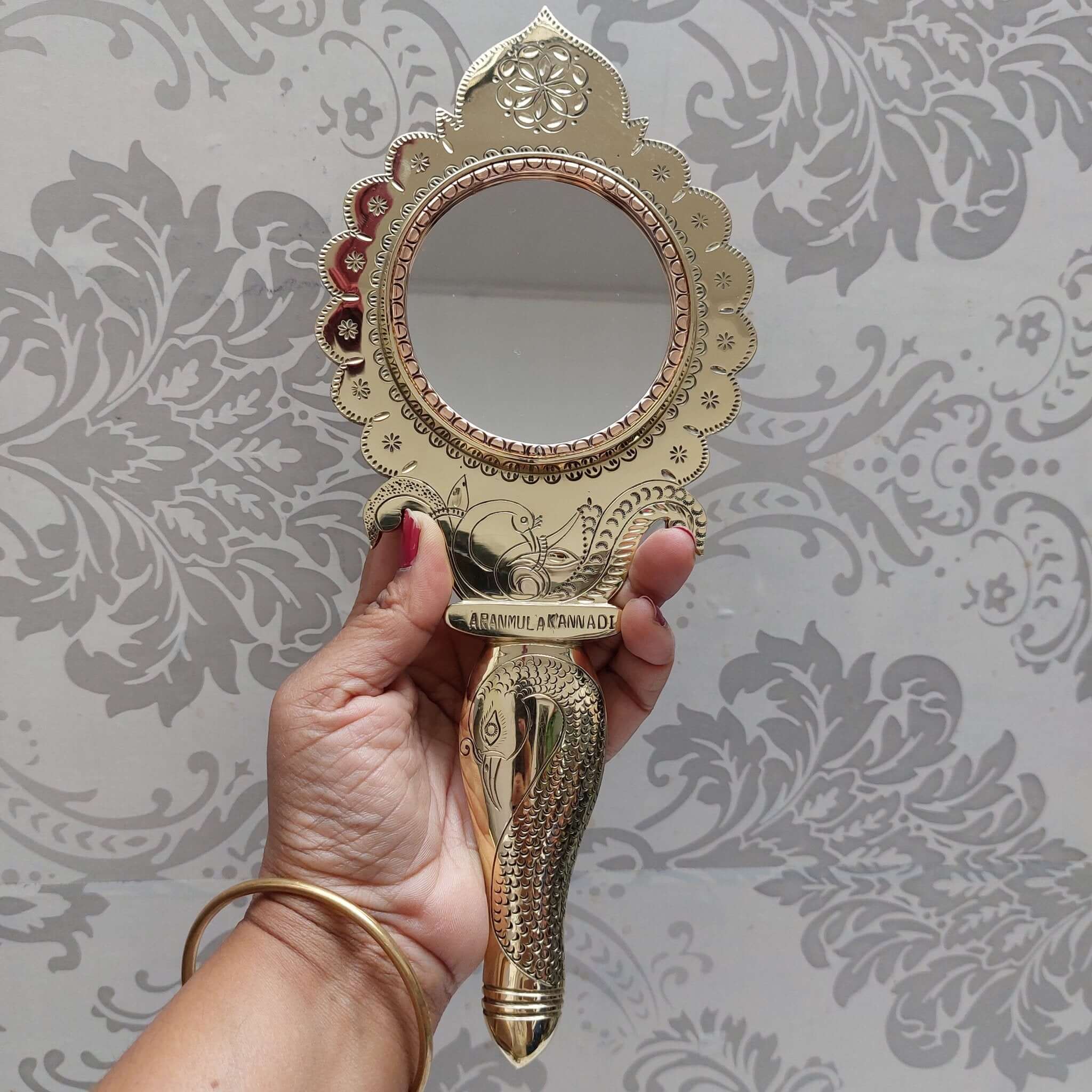
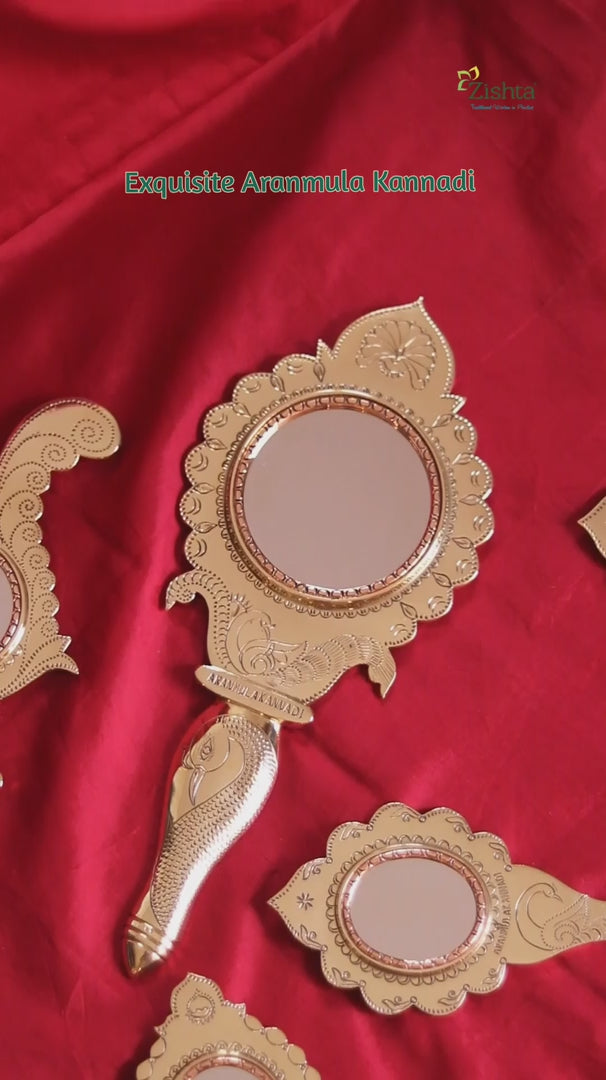
Aranmula Peacock Wall Hanging Mirror
Tax included. Shipping calculated at checkout
SECURE PAYMENT OPTIONS
PRODUCT INFORMATION
DISCLAIMER
All our products are handcrafted and this results in each product being unique and slightly different from each other and therefore will have variations on dimensions & weight.---------------------------------------------------------
The Aranmula Peacock Wall Hanging Mirror is a magnificent fusion of traditional Kerala craftsmanship and stunning design. With its beautifully intricate peacock-shaped edges, this mirror adds a regal touch to any room. Handcrafted from a unique alloy of copper and tin, it stands as a symbol of heritage and elegance.
What makes this mirror truly special is its front-surface reflection technology, providing a crisp, undistorted image. Unlike conventional mirrors, the Aranmula Peacock Mirror ensures that the object and its reflection merge seamlessly when in contact, creating a flawless visual experience.
Each mirror is meticulously handcrafted by skilled artisans, requiring exceptional precision and years of expertise. The process involves a dedication to maintaining the authenticity and beauty of this centuries-old tradition.
Traditionally known as the mirror of Goddess Parvathi, the Aranmula Peacock Mirror is believed to bring prosperity, good fortune, and divine blessings into your home. Owning this unique piece not only enhances your decor but also connects you to the rich cultural legacy of Kerala.
Diameter of the Mirror - 6.5 CM, Total length - 11 CM
These are made to order products and will be shipped within 7-10 days from placement of order.
Please note that the Nagas (Design work) around the mirror changes with each unit and cannot be standardised.
Packaged and Marketed by:
Zishta Traditions Private Limited
Address: 25/1, 9th Cross, 19th A Main, JP Nagar 2nd Phase, Bangalore 560078
Contact: +919008220185 , support@zishta.com
Country of Origin: India

Frequently asked Queries
Get your queries answered fast!
Is Aranmula Mirror Made of Glass?
The reflecting surface is made of metal. This process is a secret only the makers know how to get this perfect reflecting surface using traditional metal alloy of Copper, Tin and Zinc.
How to clean the reflecting surface or Aranmula Mirror?
Do not use chemicals or cleaning agents. Wipe the surface with a soft cloth which is provided along with your purchase. Never use water to clean the surface as it can oxidise the metal surface.
Which cluster makes this Aranmula Mirror?
As the name suggests, the aranmula mirror is crafted by a cluster of artisans in the small town of Aranmula in Kerala. This clusters history dates back several centuries.
Why buy from Zishta?
Authentic handcrafted traditions making each piece unique adoring your modern home
Crafted by generational artisans with cherished history making every item a "Masterpiece"
One Stop Shop for all Traditions of Bharat
Zishta purpose is to connect you back to your roots!
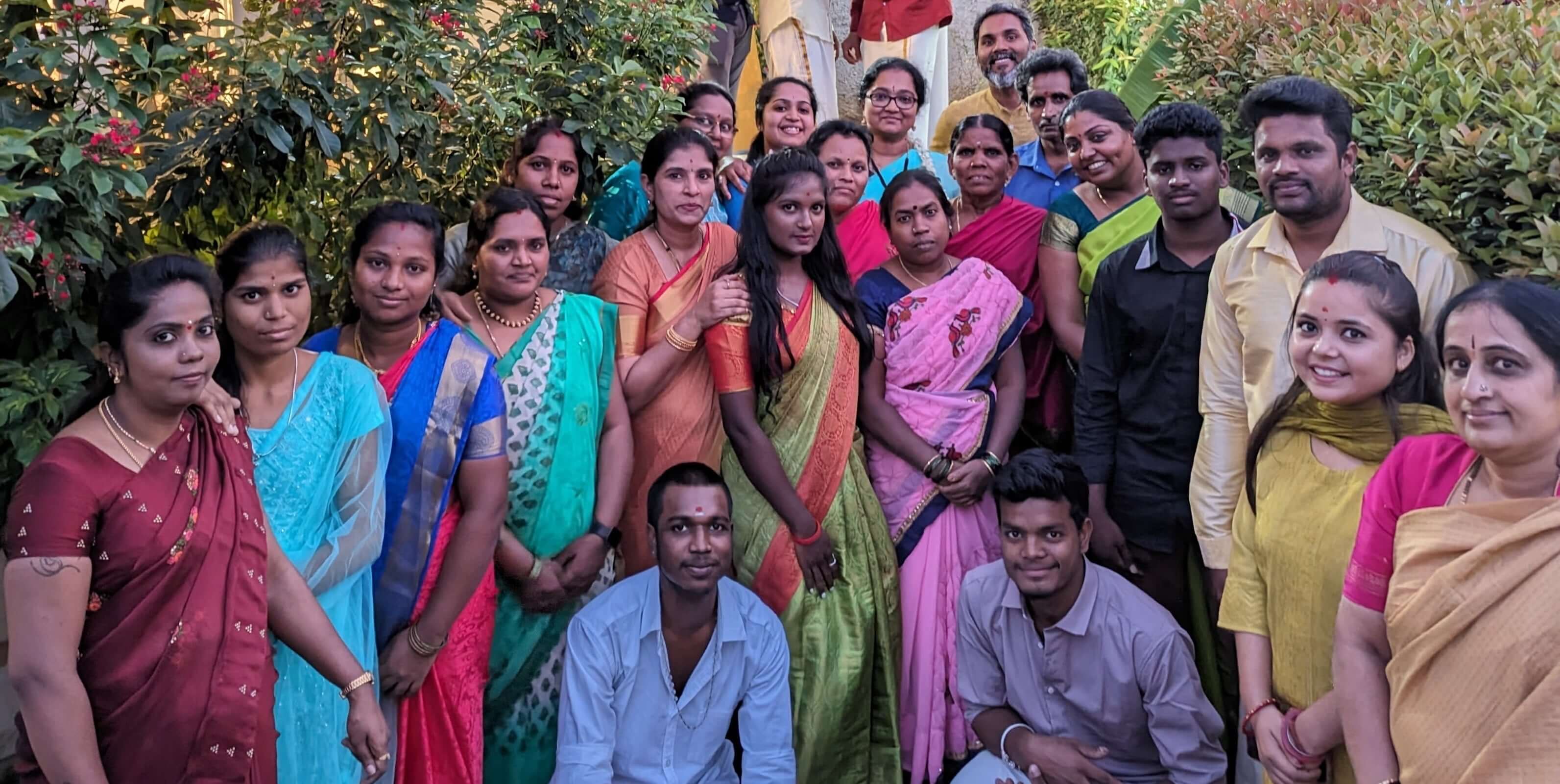
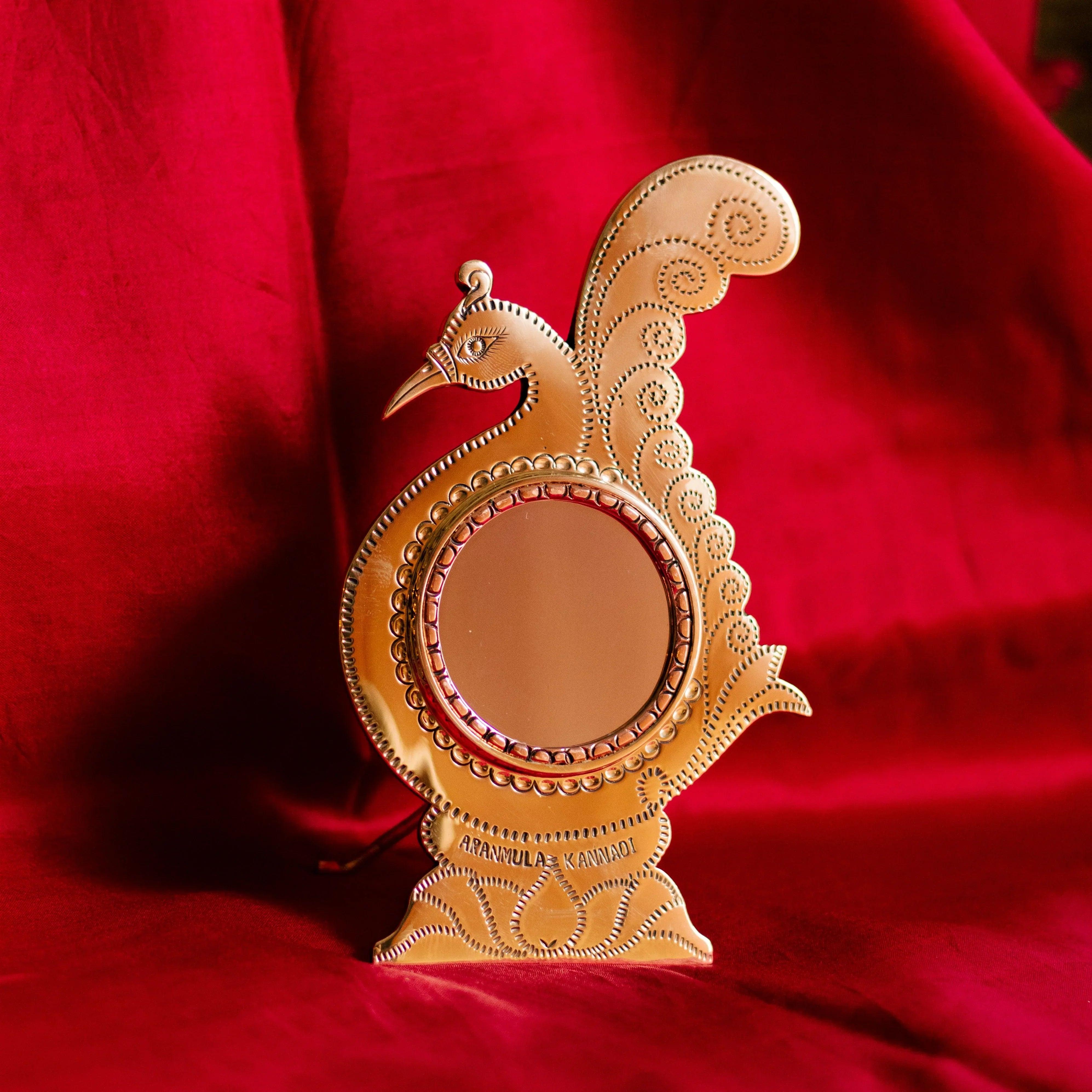
The Enchanting Aranmula Mirror: A Reflection of Kerala's Rich Cultural Heritage
Discover the history and making of the Aranmula mirror, a unique and timeless craft from Kerala. Learn about the intricate process of creating these mirrors and their significance in local culture.
Bodha our Blog
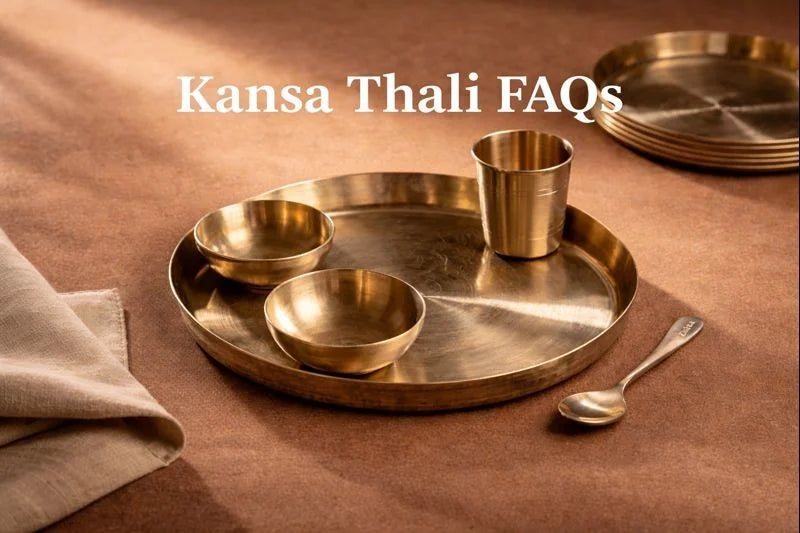
Kansa Thali FAQs: Benefits, Daily Use, Purity, Care & Safety Explained
A complete FAQ guide to Kansa thali covering health benefits, daily use, food safety, purity checks, and care - answered simply for first-time and regular users.
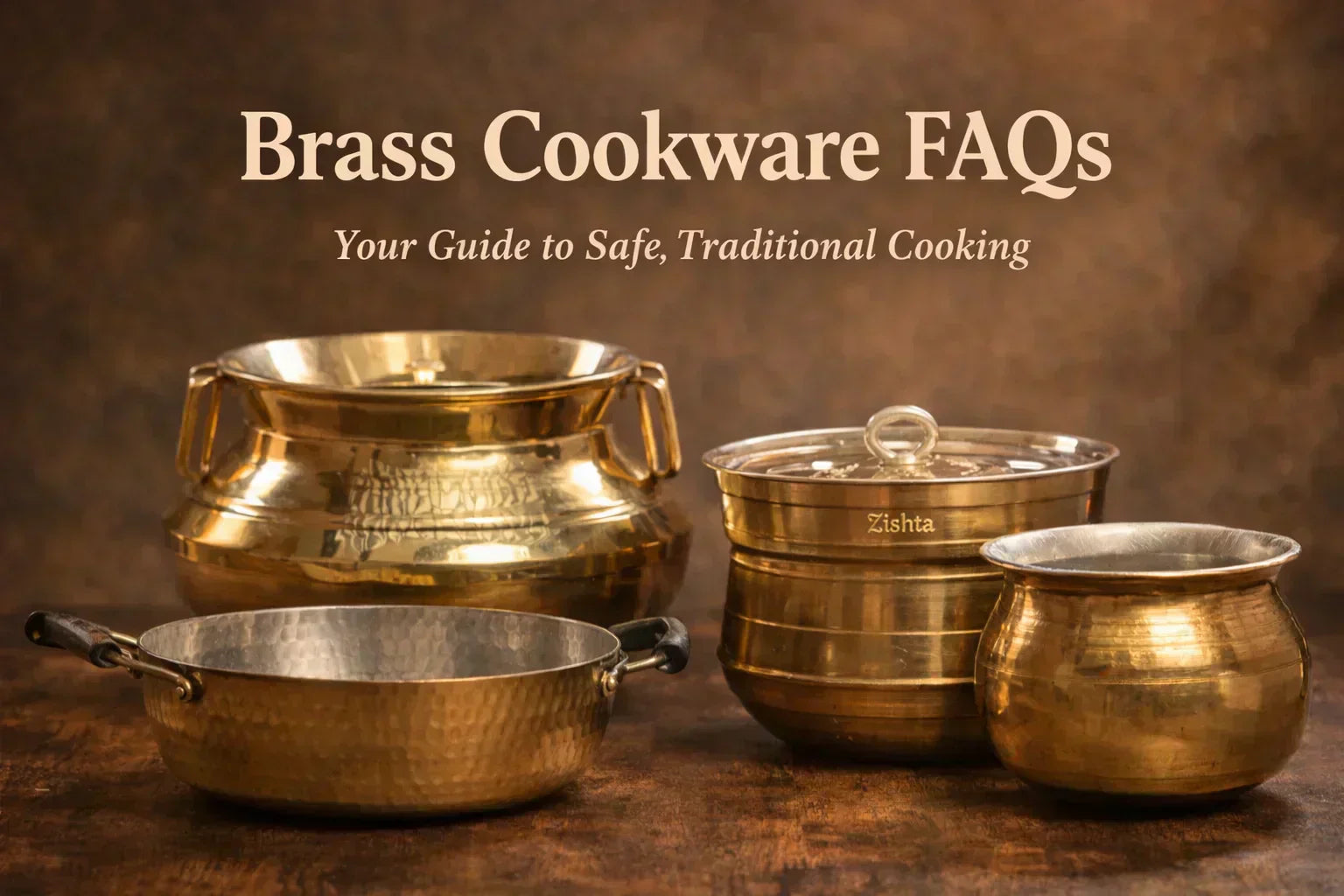
Brass Cookware FAQs: Safety, Uses, Care, and Common Questions Answered
Wondering if brass cookware is safe? This FAQ covers tin coating, usage, maintenance, and what to know before buying or cooking.

Benefits of Cooking in Pure Iron and Cast Iron Cookware
Learn why cooking in pure iron and cast iron cookware is trusted for healthy, chemical-free cooking. Covers heat control, durability, seasoning, and daily use.


